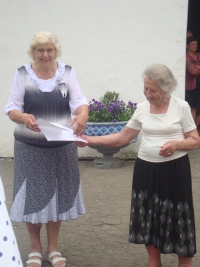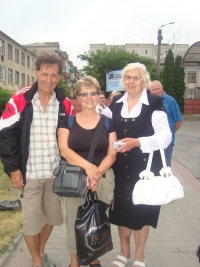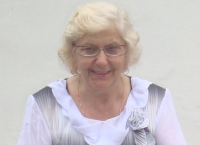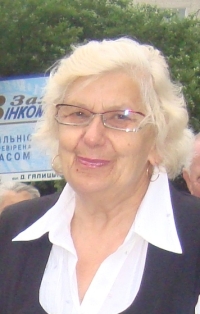I’m trying not to forget the Czechs
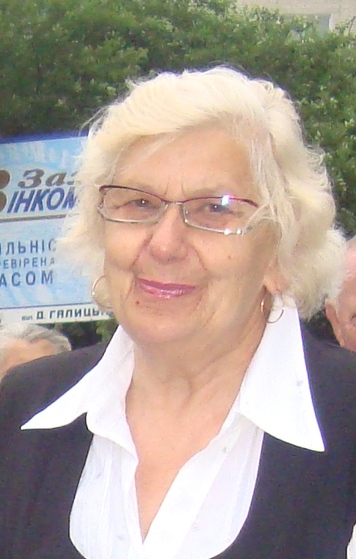
Download image
Antonina Ponomarenko was born on 5 January 1940 in Dubno, western Ukraine, into a Czech family. She belongs to the enclave of Volyn Czechs. In 1943, together with her mother, she was taken to concentration camps in Poland and Germany before she was liberated by the Red Army in 1945. In 1947, Volhynian Czechs re-emigrated, but the Ponomarenko family could not leave because of their father’s registered Ukrainian nationality. The witness worked as a secretary at the school from 1956. She then graduated from the Law Faculty of the Ivan Franko National University of Lviv from 1961 to 1967 and then worked as a lawyer and judge in Mlynov and Dubno. Since 1991 she has been the chairwoman of the Dubno Stromovka Regional Association. At the time of filming (2013) she lived in the town of Dubno in Rivne region in western Ukraine.
